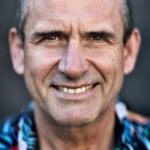
Two-time Olympic rower Sarah Cook facilitated the Crossing the Line Summit’s second panel: ‘Who am I without my sport?’, on Friday 10 November. She passionately believes we need to do a better job at creating a structured dual pathway out of sport, and equipping athletes for potentially long-term challenges.
Cook partnered with Kim Brennan in the coxless pairs at 2008 in Beijing and raced in the eight at London in 2012. She then turned to sailing where she became an Australian representative and is now Sailing Australia’s operations manager.
A dual pathway to life after sport
Cook was joined on the panel by Brennan, who is also a passionate advocate of equipping athletes with a dual pathway, helping them thrive both during and after their sporting careers.
Brennan studied and worked as a lawyer during her elite rowing career. She went on to win two world titles in the single sculls and an Olympic gold medal in Rio, while also landing an advisory job at EY. Brennan said her incredible focus as a rower is also what helped her excel in her corporate career.
“There’re many skills which are highly transferable from sport into business, such as resilience and an ability to learn,” she said. “Many athletes feel the pain of transition later in life but there can’t be a never-ending ‘duty of care’. Athletes need to learn to articulate these skills – for example, the fact that they’ve been a project manager throughout their career.”
Brennan also launched the new EY Sporting Employment Program later in the day. The program aims to provide current athletes with flexible work conditions while they are still training.
“Dual careers are easy to talk about, but the job market can be inaccessible to elite athletes at the height of their training, even if they have university degrees.”
Focus on the journey, not the destination
Also on the Who am I, without my sport? panel were Al Baxter (rugby union), Mike Pyke (AFL), Ed Fernon (modern pentathlon), Sarah Rose (swimming), Jarrad Howse (surfing) and Jonathan Stone (rowing).
Like Brennan, Al Baxter followed a dual pathway during his sporting career. The former Wallaby prop competed in the 2003 and 2007 Rugby World Cups, while also working as a qualified architect. He retired in 2011 and now works as an architect full time.
“I made sure I looked for opportunities as an athlete that I could use later as an architect,” Baxter said. “I used all the contacts I got while I was an athlete in my life after sport.”
Fernon competed in modern pentathlon at the 2012 London Olympics, after only three years training. Earlier this year, he showed his versatility, resilience and adventurous spirit by winning the 1,000km Mongolian Derby horserace. Fernon believes athletes who value their accumulated experiences will have a more successful transition.
“We need to look at what we have learnt from our journey,” he said. “We know a lot from the journey we’ve been on. A lot of organisations are exactly looking for this type of knowledge in athletes.”
“As athletes we’re always looking at the destination. We need to look at the journey.”
“Everything we learn as athletes we can take on to the next step.”
This is your time
Canadian-born Mike Pyke, who played for the Swans 2012 AFL premiership-winning side, advises athletes to make the best of their sporting careers to set a path forward.
Pyke, who has worked in investment banking since he retired from AFL football in 2015, said: “I always tell athletes ‘this is your time’. You will never have as many opportunities as you do now.”
Pyke agreed with Brennan that we need to think about duty of care and athlete’s personal responsibility working together.
“Players always think they have one more year to go but the time is now to think of the future.”
An opportunity for change
Dr Deidre Anderson, an athlete performance and transition specialist, covered similar themes in her workshop ‘Building a Career: Avoiding Identity Crisis’.
“When you leave sport, either voluntarily or involuntary, you go through a grief process. Everyone does. And sometimes that process can last 20 years,” she said.
“Have the conversation early. It will save so many problems down the track.”
“The mix of shorter raw panel discussions followed by deeper more interactive workshops enabled everyone to explore these themes on a deeper level,” said Crossing the Line founder Gearoid Towey. “There is a need and appetite for this level of conversation in the sporting community and we have a real opportunity to make positive change.”


